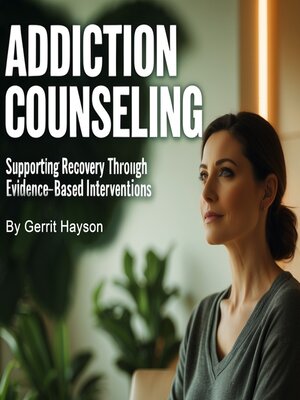Addiction Counseling
audiobook (Unabridged) ∣ Supporting Recovery Through Evidence-Based Interventions
By Gerrit Hayson

Sign up to save your library
With an OverDrive account, you can save your favorite libraries for at-a-glance information about availability. Find out more about OverDrive accounts.
Find this title in Libby, the library reading app by OverDrive.



Search for a digital library with this title
Title found at these libraries:
| Library Name | Distance |
|---|---|
| Loading... |
This audiobook is narrated by a digital voice.
Addiction represents one of the most complex and challenging issues facing healthcare professionals, families, and communities worldwide. Far from being a simple matter of willpower or moral failing, addiction is now understood as a chronic brain disorder characterized by compulsive engagement with rewarding stimuli despite adverse consequences. This fundamental shift in understanding has profound implications for how we approach treatment and recovery support.
The neurobiological basis of addiction involves alterations in brain circuits responsible for reward, motivation, memory, and executive control. When someone repeatedly uses substances or engages in addictive behaviors, these neural pathways become hijacked, creating powerful drives that can override rational decision-making processes. The prefrontal cortex, responsible for impulse control and decision-making, becomes impaired while the limbic system's reward circuitry becomes hyperactivated in response to addiction-related cues.
This biological reality does not diminish personal responsibility but rather provides a framework for understanding why traditional approaches emphasizing willpower alone often prove insufficient. Recovery requires comprehensive intervention that addresses both the neurological changes and the psychological, social, and spiritual dimensions of the individual's experience. Effective addiction counseling recognizes this complexity and employs evidence-based strategies that work with, rather than against, the realities of how addiction affects the brain and behavior.







